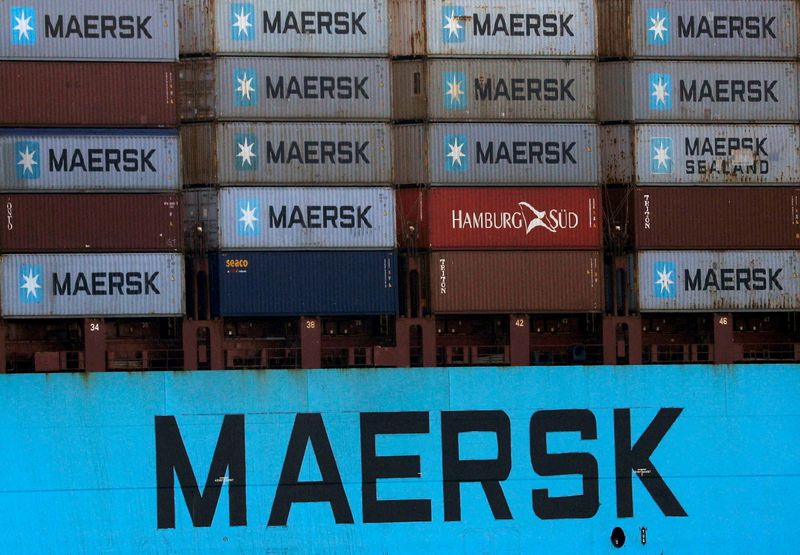SHANGHAI (Reuters) - Danish shipper Maersk said the Shanghai lockdown will severely hurt trucking services and increase transport costs, as China's intensifying efforts to fight the spread of COVID-19 further rattles global supply chains.
The Chinese coastal city, home to some of the world's busiest sea and airports, began locking down half of the city on Monday and intends to do the same to the other half for four days starting Friday in a two-stage testing exercise.
While it has kept its airports and deepwater port open, it has imposed stringent movement curbs, barring unapproved vehicles from streets and telling millions of people not to leave their homes.
"Trucking service in and out (of) Shanghai will be severely impacted by 30% due to a full lockdown on Shanghai's Pudong and Puxi areas in turn until 5th April," Maersk, the world's second-largest container shipping company, said in an advisory to clients on Monday.
It adding that warehouses in Shanghai would be closed until Friday.
"Consequently, there will be longer delivery time and a possible rise in transport costs such as detour fee and highway fee."
SEKO Logistics, a U.S.-based freight transport and warehousing company, said factories in the neighbouring province of Zhejiang were opting to move cargo out of Ningbo's port, rather than Shanghai.
"We are anticipating: a sharp increase in air freight rates from today. We have already received some sky-high offers for enquires to Europe so far today," it said on its website.
China is battling its largest number of COVID-19 infections since the onset of since the country's initial outbreak receded in early 2020. This month it placed lockdowns on other manufacturing exports hubs such as Changchun and Shenzhen, which gave rise to lengthening queues outside major Chinese ports.

Although curbs in Changchun have remained in place, they have been relaxed in Shenzhen, where businesses and factories were allowed to resume operations on March 21.
However, a survey conducted by a state newspaper found Shenzhen's "war" on COVID-19 has hurt up to 93% of local small and medium-sized companies, with many suffering production disruptions because of shutdowns, interruptions in supply chains, and delays in order executions.